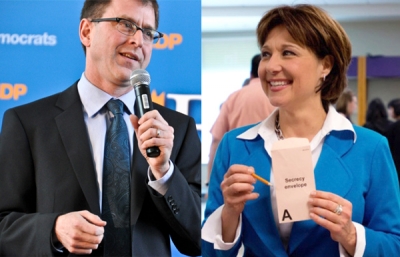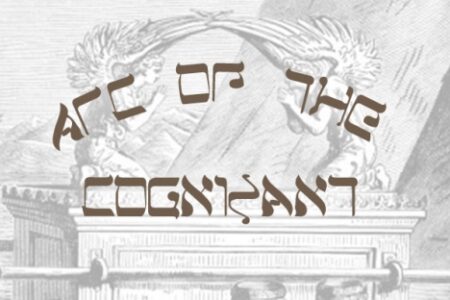COMMENT: Can political polls be trusted?
[Editor’s note: This piece was posted to the Common Sense Canadian just before Tuesday’s election, but in the wake of the surprising results, it’s more relevant now than then]
Good thing most people don’t listen to the polls. If they did, they just might throw in their cards and give up. The clearest indication yet that pollsters don’t know what they’re doing – or are driven by motives other than the accurate prediction of election outcomes – was the 2012 Alberta election. Polls indicated the young, upstart Wildrose Party (a.k.a. Wildrose Alliance Political Association) was ahead by a wide and startling margin. While the party is little known to many Canadians, it is clear that it derives its support from Alberta energy companies. Go figure.
Of course we all know what happened. The other party won, to everyone’s apparent surprise. The Progressive Conservative Association of Alberta has retained power in Alberta since 1971, and continued to do so in 2012 by defying the odds set against it by the pollsters who claimed their surveys showed voting Albertans no longer backed the venerable party.
Who knew, right? Wrong. Canadians now live in a political environment so illusionary that unknown pollsters are able to come from out of nowhere to try and persuade the public into believing any unsubstantiated claim. But do Canadians bite? Generally, no.
Heading into the 2013 B.C. election, voters are seeing this same theme. Suddenly, obscure pollsters often funded by unknown sources are constructing the narrative that the ailing B.C. Liberal Party checked itself into the ER, bandaged itself up, and is making a contest out of what was anything but.
Leading into the final weeks of the election, the provincial NDP showed strength and endurance – outpacing their dogged counterparts. Then came the paid advertisement featuring none other than the “Comeback Kid” herself, Premier Christy Clark, on the front page of the Sun Media-published 24 Hours newspaper – the Vancouver edition that is. It’s probably worth mentioning this is a company owned by that monolith back East known as Quebecor Inc., which in case you haven’t been following, wants its conservative-slanted news channel on the docket of must-see TV for Canadians.
The headline reads, “Poll: Christy Clark stands tall in debate,” and shows our glowing leader all smiles, arm raised in a triumphant pose. Critical and discerning B.C. voters might ask, “How can a poll say Clark stood tall in the recent televised debate?” Did the people who were polled unanimously suggest this by using these exact words? Mysterious to say the least.
Back in 2004, respected pollster Angus Reid suggested there was a problem in the way polls were conducted. While it’s now 2013, Reid’s concerns should raise the hairs on any honest voter’s neck.
In two Tyee articles, Reid suggests there are too many non-media funded polls being conducted. In addition to this, he says many polling firms don’t say how many people refused to participate in the survey, whether conducted by phone or online. He goes on to explain that polls conducted in provincial elections, which are more regional in nature and see a smaller sample size, allow for as much as a 20-point margin of error.
While Reid toots his own horn in the Tyee articles, saying his method has allowed for his polls to be more accurate than his competitors, if this is a fact then what’s the problem? And the facts do demonstrate that Reid, now an executive director at Vision Critical, is much more right more of the time than many other pollsters out there. So what he has to say matters. And it resonates no less today than it did eight or nine years ago.
Case in point: polls closing out the last working week leading into the BC election show wide discrepancies. An Angus Reid poll has the NDP out in front by a nine-point margin after going from 20 points ahead down to six, then back to nine. Meanwhile, a poll commissioned by the Victoria Times-Colonist says the NDP lead has “narrowed to just four percentage points.”
It’s worth highlighting the fact that the current publisher of the Times-Colonist is none other than ex-Hollinger executive David Radler. For those who thought he was locked up somewhere in jail for participating in fraud along with his former pal and partner, Conrad Black, Radler actually now enjoys a leadership role at Glacier Newspaper Group. Radler tattled on Black and got off. And now he’s busy commissioning polls from unknown firms (in this case it’s Oraclepoll Research Ltd. – check out their website and decide for yourself if you’d trust them), suggesting the Liberals are in the midst of a miraculous comeback. Huh? Did we British Columbians miss something?
The B.C. election supposedly became a “horse race” when Adrian Dix said he opposed a B.C. Kinder Morgan pipeline expansion, which would see a dramatic increase in Alberta bitumen departing from the Lower Mainland where tankers park in the waters off Georgia Straight one after another to fuel up. In a laughable article from the Edmonton Journal (where we see a good example of journo-speak, i.e. the word “some”, as in “some pundits,” is used to somehow create credibility), the writer indicates that Dix’s flip-flop might cost him the election. Yet, a poll from Justason Market Intelligence says the exact opposite, using hard facts rather than the term, “some pundits.” Who are these pundits anyway?
According to Justason, 35 per cent of B.C. voters polled supported Dix more after his opposition to the Kinder Morgan pipeline expansion. This is compared to just 24 per cent who were less supportive. Many large newspapers would have B.C. voters believe otherwise. It’s a good thing voters aren’t as stupid as pollsters apparently believe they are.
You’d think the media and the polling firms would take a hint and start serving the public they say they serve, rather than corporate interests that only work to their shareholders’ benefit. It’s time newspapers and polling firms do proper investigative work to show the truth to voters, and not deceive them. Newspaper people bemoan their industry as dying because of the Internet. This couldn’t be more wrong. Newspapers, and legacy news outlets in general, are losing ground to more innovative online news agencies because they no longer serve the public’s best interest.
It remains to be seen what happens in Tuesday’s provincial election, but if it’s anything more than a close finish between the NDP and Liberals, then our pollsters and corporate media will have some serious explaining to do.
John King was a reporter and editor at a number of newspapers in Western Canada. Today he runs a design firm.























Comments